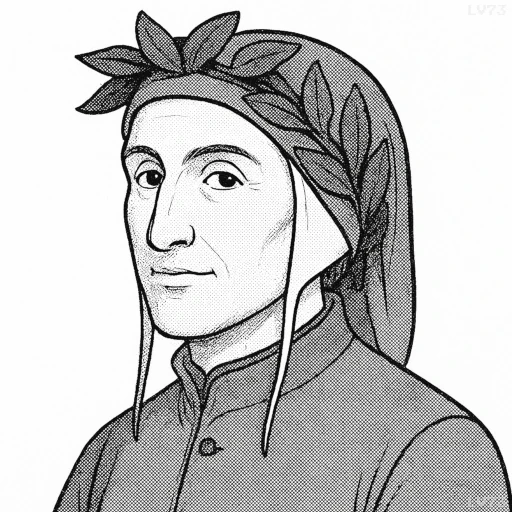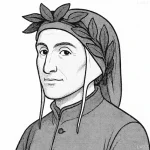“Art, as far as it is able, follows nature, as a pupil imitates his master; thus your art must be, as it were, God’s grandchild.”

- c. 1265 – September 14, 1321
- Italian
- Poet, Writer, Philosopher, Author of The Divine Comedy
table of contents
Quote
“Art, as far as it is able, follows nature, as a pupil imitates his master; thus your art must be, as it were, God’s grandchild.”
Explanation
This quote is taken from Dante Alighieri’s Inferno, Canto XI, where Virgil explains the moral structure of Hell. In the original Italian: “L’arte, vostra, segue, come il maestro fa il discente; sì che vostr’arte a Dio quasi è nepote.” Dante presents a philosophical and theological view of art, stating that art imitates nature, and since nature is a direct creation of God, then art is indirectly derived from God—hence, a kind of “grandchild.”
In this context, “art” refers broadly to human creativity and craftsmanship, including professions, sciences, and technologies that aim to perfect or extend what nature begins. Dante’s medieval worldview, influenced by Aristotelian and Thomistic philosophy, sees a hierarchy of causation: God creates nature, and nature inspires art. This hierarchy legitimizes human creative work—but only insofar as it aligns with divine and natural law. Any art that violates this order is, in Dante’s view, morally suspect.
In modern times, this quote speaks to enduring debates about the purpose and limits of human creativity. It invites us to consider whether our technologies, designs, and cultural productions are in harmony with nature and ethical principles, or whether they distort them. Dante’s vision places responsibility on the artist—to create not merely for vanity or profit, but as a humble imitator of the divine, honoring the deeper order of existence.
Would you like to share your impressions or related stories about this quote in the comments section?

